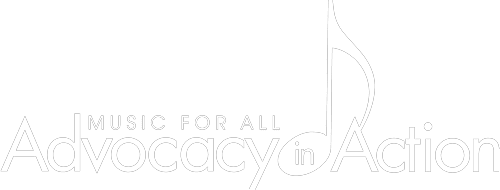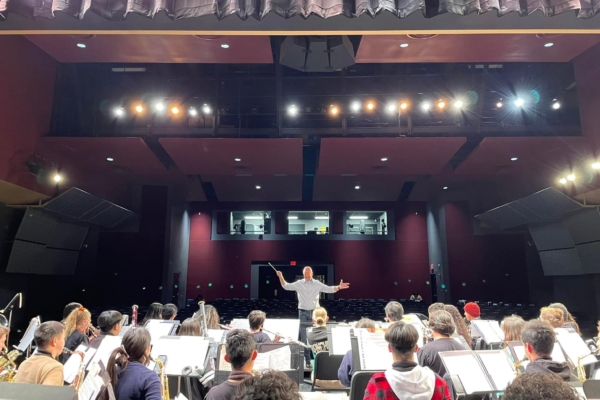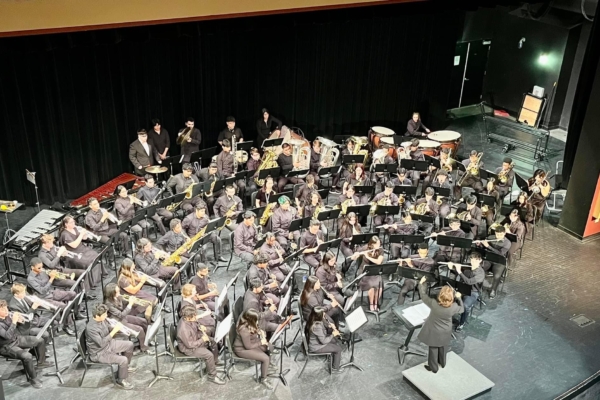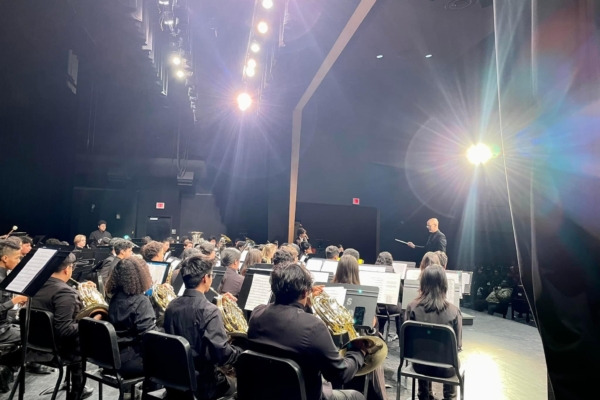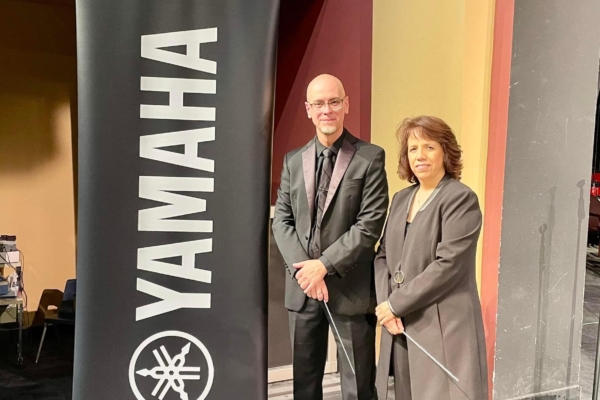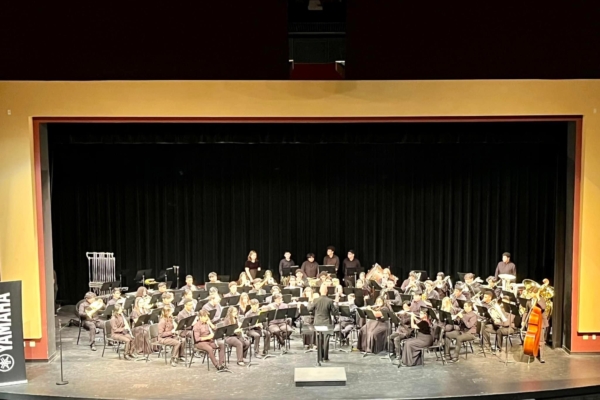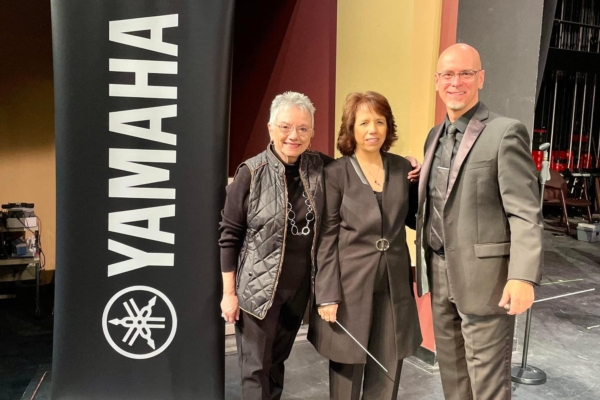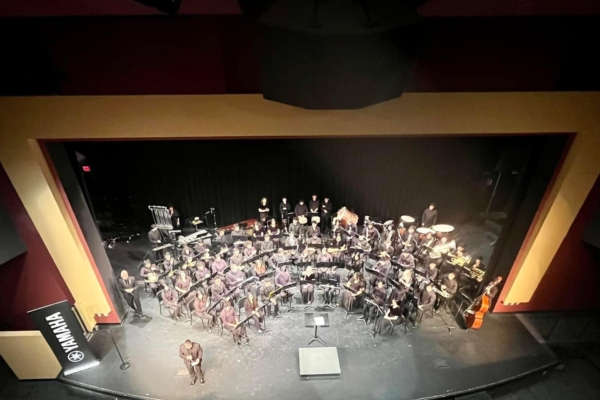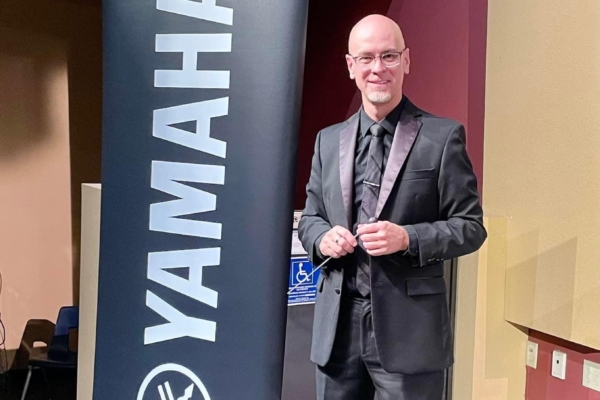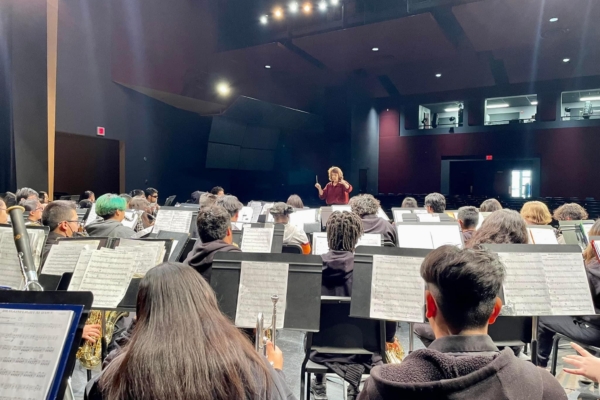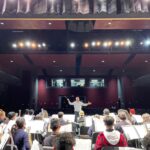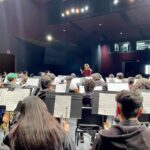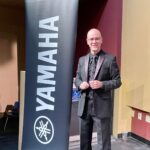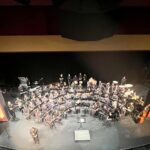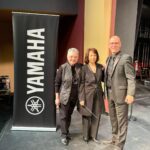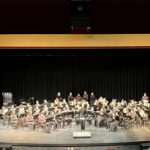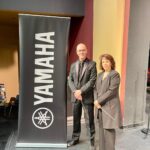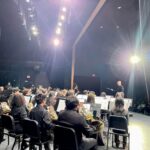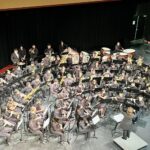“The Southern Nevada Honor Band”
The Southern Nevada Honor Band Initiative
Las Vegas, NV
Description
In 2014 the band directors from Rancho High School, Bonanza High School, Clark High School, Cheyenne High School, Centennial High School, and Chaparral High School came together to develop an honor band program specifically centered around the Title 1 schools within the Clark County School District that encompasses the Las Vegas metropolitan area and Southern Nevada. The aim of this program was to increase engagement in honor band experiences from the underserved communities within the Las Vegas valley. At that time, only one honor band audition and clinic experience was available to high school students in the region.
Objectives
To provide a pedagogically sound activity by incorporating evidence-based assessment and quality instruction and experiences for a no-cost participation experience to high school band students from Title 1 schools in the Clark County School District from Las Vegas, NV. Through this experience, students engage with other students from other diverse backgrounds in a positive musical experience with high quality wind band clinicians. With over ten high schools represented since the SNHB was established, students walked away with a positive experience, leading to a higher retention rate in their home schools. There are many Title 1 schools with wonderful bands who provide meaningful music experiences for their own communities who’s students deserved an opportunity to earn an honor band experience in their own terms. After much discussion and planning the SNHB held their first auditions and clinic/concert in January 2015 at Rancho High School and Bonanza High School, respectively. The SNHB consisted of one high school performing ensemble with 90 students. They were conducted by Dr. Adam Lambert, Director of Bands, Southern Utah University. Since the year of its inception, the SNHB has continued to serve the Title 1 community, providing a musically educational experience that is free-of-charge to all participants. As the program developed, more students from the Title 1 schools within the district have participated. Clinicians invited to conduct included Diane Koutsulis, Dr. Zane Douglass, Dr. Richard MacEnaney, Dan Berard, and Rayne Ellison. In January of 2023, participation in the SNHB was large enough to expand to two performing ensembles: SNHB Wind Ensemble and SNHB Wind Symphony.
Target Audience
CCSD is the 5th largest school district in the nation serving over 300,000 students. Currently the district only facilitates the audition and clinic of three honor bands. After comparing the size and scope of our district to other comparable sized metropolitan school districts, it was found that we can sustain more honor band opportunities. During its inception of 2014–2015, we decided to focus on Title 1 students, many of whom did not have the means for private lesson instruction. Through this initiative, recruitment for Title 1 band programs saw a positive change as these students had an additional opportunity to succeed and participate in an honors ensemble.
Timeline
Each year in the early fall, the directors met to discuss and recruit potential clinicians who would be not only engaging but also serve as excellent pedagogies for our students. After the marching band season, audition etudes are disseminated and the audition and clinic location are announced. In early January, the directors of each school and their staff serve as adjudicators in blind auditions at one of the participating schools. After the auditions that day, the ensemble personnel are announced and directors receive the music for each of their students who made the ensemble. The two-day clinic then takes place in late January, concluding with a public concert showcasing the students’ work.
Overview of Planning and Execution
The efforts to design, organize and strategize require the efforts of all directors of the participating schools as well as outreach planning, contributions, and other resources from our community. The directors of Rancho High School at that time (Clint Williams and Monica Guido) organized most of the logistics, etudes, assessment, and planning. Ms. Julia Reynolds, Phi Beta Mu International Board Member and Executive Secretary of the Arkansas Band and Orchestra Association and Barry Lumpkin, Retired Director of the Harding Academy, Memphis, TN and owner of the Audition Manager software, were consulted to help the design and logistics to operate a successful objective audition that provided educational feedback for the students performance. Additionally, Marcia Neel of Yamaha Corporation of America and Chuck and Dave Kessler from Kessler & Sons Music of Las Vegas NV (the exclusive Yamaha provider for Las Vegas, NV), graciously decided to contribute resources during the tenure of this project, beginning in 2015. Food, a commemorative patch for the letter jacket, certificates, student hospitality, and clinician fees have been impacted by their contributions. To date, the following schools and directors have participated: Bonanza High School (Andrew Bonhart), Centennial High School (Michael Rambat), Cheyenne High School (Siobhan Fergiels), Chaparral High School (Chris Pierson and Daniel Jenson), Clark High School (Jeffery Lacoff and Julio Vargas-Guerra), Las Vegas High School (Zacharey Hartley), Desert Pines High School (Jeffrey Hines), Rancho High School (Clint Williams, Monica Guido, Max Feld, and Andrew Smouse), Sierra Vista (Melissa Bushee), Sunrise Mountain High School (Angela Cresap), and Valley High School (Gary Brown).
Tools and Resources
The Southern Nevada Honor Band auditions and clinics have benefitted from contributory forces of the Secondary Music, Dance, and Theatre (SMDT) coordination office of the Clark County School District. Dr. Richard MacEnaney, retired SMDT Coordinator, and Mr. Jeff Williams, current SMDT Coordinator, has been instrumental throughout the years to promote and secure audition and rehearsal space and contribute resources to any endeavors that needed attention. Additional tools and resources were provided by Yamaha Corporation of America, Kessler & Sons Music, and the individual directors that participated.
Marketing and Promotion
During the initial inception, marketing was limited to within-district correspondence. As the program has been developing, we have promoted the event through the individual band programs and social media channels. After Title 1 eligibility has been determined by the State of Nevada and CCSD, information packets were compiled and disseminated to eligible band directors at their respective schools. No financial contribution is required from the students or directors to participate in the event. Currently there is not a formal platform for disseminating and distributing official materials of the SNHB. We have been fortunate that the partnership with CCSD has promoted the SNHB events within the community using their means and platforms. Kessler and Sons Music in Las Vegas has also been supportive of this initiative by providing financial support for student hospitality, clinician fees, certificates, etc. so the students and band programs do not have to face the financial burden. The Yamaha Corporation of America has also been supportive of our advocacy initiative by providing a nationally renowned clinician for the ensembles.
Costs
Thanks to the gracious contributions by Yamaha Corporation of America, Kessler & Sons Music, and the SMDT office of CCSD, the majority of expenses were addressed. During the formative years, the collective of schools would split costs evenly, typically paid for from the directors pockets. This was required to offset any expenses required of the students from these underserved communities. Since that time, most of the expenses have been compensated or funded by our generous sponsors. Specific amounts varied each year, but thousands of dollars have been generously supplied to continue to provide the quality of experience and education.
Challenges/Obstacles
Initially, many directors within the larger community of CCSD did not believe the SNHB could be sustainable or of value. Since its inception, over 1,200 students have benefited from this honor band program. Every year, more students have enrolled to audition. In 2023, the honor band audition pool was large enough to create two honor bands. Wonderful clinicians and a support group of integrity has assuaged any concerns of the honor band program being a viable, sustainable, and educative experience for the students who have chosen to participate.
Success/Effectiveness Measurement
Eight years after the initial inception, the honor band system has continued to provide quality assessment and clinic experiences for the community it serves. Additionally, the growth from one honor ensemble to two honor ensembles has shown a functional relationship between the engagement and retention of students who continue to audition for the SNHB.
Community Impact
Young musicians benefit from the procedures and exposure of an honor band experience. Preparing music, listening to peers, and opening oneself to vulnerability all provide experiences of growth. These experiences can change lives and provide hope that may generalize to other settings and conditions in these young people’s lives. More honor band opportunities are important than less. Each time a student prepares a different set of music they become stronger musicians and better at social, sensory, and motor skill acquisition. Since 2015, the SNHB has been embraced by the larger school district and community of which it serves. Many Title 1 schools that benefit from the program encourage students of all musical backgrounds and performing levels to learn by going through the audition process, receiving scored objective feedback, and learning from the procedure. The students who participate in the activity go back to their home programs with encouraging stories, better playing skills, and enjoy making music with peers who can relate to their own personal story and background. The program has benefited all programs who have participated by shaping new leaders, encouraging better performance practice, and linking together people from communities who may not “shine as bright” as some of their cohorts in more affluent areas of the Las Vegas community.
Advice for others?
If you have an underserved community with little opportunity for students to participate in an honor band experience, call adjacent school band programs and build a system that is objective, impartial, and educative for the students.
